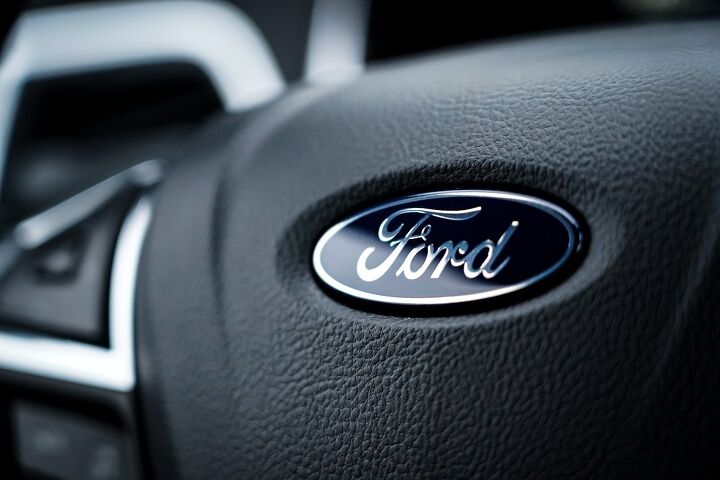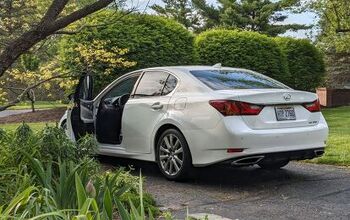Report: Ford CEO Says China Strategy Changing

Ford Motor Company is tweaking plans in China and seeking to turn around financial losses after five years of lackluster sales within the region. The new strategy will be focused on exporting to other countries, commercial product, and reinforcing the necessary supply chain for all-electric vehicles.
CEO Jim Farley has reportedly returned from Asia to finalize those plans, which were reiterated during a press call about Ford’s first-quarter earnings held earlier in the week. According to Automotive News, the executive stated that China would remain important to the company. But that the businesses would need to focus on sectors that would yield the highest return on investment. So far, direct sales haven’t been a part of that.
But it doesn’t appear to be for a lack of trying. Ford has introduced new models specifically designed to cater to Chinese customers. Still, Changan Ford (the automaker’s regional joint venture) only held 1 percent of all Chinese light-vehicle sales in 2022 vs the 4 percent it managed to snag in 2016.
The business lost $572 million in China last year. Sadly, it will be harder to determine how it’s doing moving forward because Ford doesn’t intend on breaking down earnings by geographic location anymore. Like many manufacturers, it has also streamlined its sales reporting to a point where the resulting data borders on useless.
Ah, transparency.
"We're not going to try to serve everyone," Farley said on Tuesday. "It will be a lower investment, leaner, much more focused business in China."
From Automotive News:
Farley cited the company's joint venture partnership with Jiangling Motors Group as an example of what it will do moving forward, with plans to use Chinese operations as "export hubs" for affordable EVs and commercial vehicles to markets such as South America, Australia and Mexico.
Last month, the company announced the next-generation Lincoln Nautilus for North America would be exported from China, a first for Lincoln. Executives have said the luxury brand is profitable in China.
Asia has historically proven to be a slippery fish for American automakers. Japan has long seemed impervious to U.S. products, despite having been so heavily influenced by American culture following the 1940s.
But things have been a little different in China. While the country has been incredibly strict on vehicle importation and often required foreign businesses to engage in partnerships with local firms, American brands do exist there. Some brands (e.g. Buick and Cadillac) have even done quite well for themselves. However, similar to Japan, it’s the German brands that seem to be getting the most love.
Ford has been trying to make China work for years. But robust sales within the region have not manifested, making its decision to revamp operations unsurprising.
That said, leadership continues to claim that the market (which is now the world’s largest) will remain incredibly important. There are just too many potential buyers and China is aggressively pushing toward electrification and basically owns the global market in terms of battery production.
"We believe that not only is it the biggest EV market in the world, but customers digitally are ahead of the rest of the world, and so it's a really important market for us," said Farley. "And what we really see in our presence there is battery tech, digital experiences for the customer and advanced product, both software and hardware integrated."
[Image: Nick Shoe/Shutterstock]
Become a TTAC insider. Get the latest news, features, TTAC takes, and everything else that gets to the truth about cars first by subscribing to our newsletter.

A staunch consumer advocate tracking industry trends and regulation. Before joining TTAC, Matt spent a decade working for marketing and research firms based in NYC. Clients included several of the world’s largest automakers, global tire brands, and aftermarket part suppliers. Dissatisfied with the corporate world and resentful of having to wear suits everyday, he pivoted to writing about cars. Since then, that man has become an ardent supporter of the right-to-repair movement, been interviewed on the auto industry by national radio broadcasts, driven more rental cars than anyone ever should, participated in amateur rallying events, and received the requisite minimum training as sanctioned by the SCCA. Handy with a wrench, Matt grew up surrounded by Detroit auto workers and managed to get a pizza delivery job before he was legally eligible. He later found himself driving box trucks through Manhattan, guaranteeing future sympathy for actual truckers. He continues to conduct research pertaining to the automotive sector as an independent contractor and has since moved back to his native Michigan, closer to where the cars are born. A contrarian, Matt claims to prefer understeer — stating that front and all-wheel drive vehicles cater best to his driving style.
More by Matt Posky
Latest Car Reviews
Read moreLatest Product Reviews
Read moreRecent Comments
- 28-Cars-Later Zerohedge reported something similar in Belgium with the reasoning being the Chinese are flooding Europe with EVs in the early innings of a trade war. For Tesla any guess is a good one but my money is on BEV saturation has been reached.
- MacTassos Bagpipes. And loud ones at that.Bagpipes for back up warning sounds.Bagpipes for horns.Bagpipes for yellow light warning alert and louder bagpipes for red light warnings.Bagpipes for drowsy driver alerts.Bagpipes for using your phone while driving.Bagpipes for following too close.Bagpipes for drifting out of your lane.Bagpipes for turning without signaling.Bagpipes for warning your lights are off when driving at night.Bagpipes for not coming to a complete stop at a stop sign.Bagpipes for seat belts not buckled.Bagpipes for leaving the iron on when going on vacation. I’ll ne’er make that mistake agin’.
- TheEndlessEnigma I would mandate the elimination of all autonomous driving tech in automobiles. And specifically for GM....sorry....gm....I would mandate On Star be offered as an option only.Not quite the question you asked but.....you asked.
- MaintenanceCosts There's not a lot of meat to this (or to an argument in the opposite direction) without some data comparing the respective frequency of "good" activations that prevent a collision and false alarms. The studies I see show between 25% and 40% reduction in rear-end crashes where AEB is installed, so we have one side of that equation, but there doesn't seem to be much if any data out there on the frequency of false activations, especially false activations that cause a collision.
- Zerocred Automatic emergency braking scared the hell out of me. I was coming up on a line of stopped cars that the Jeep (Grand Cherokee) thought was too fast and it blared out an incredibly loud warbling sound while applying the brakes. I had the car under control and wasn’t in danger of hitting anything. It was one of those ‘wtf just happened’ moments.I like adaptive cruise control, the backup camera and the warning about approaching emergency vehicles. I’m ambivalent about rear cross traffic alert and all the different tones if it thinks I’m too close to anything. I turned off lane keep assist, auto start-stop, emergency backup stop. The Jeep also has automatic parking (parallel and back in), which I’ve never used.


































Comments
Join the conversation
Reminds me of the 80's when the Japanese kicked the Big Three and the 90's when the Koreans gobbled up the inexpensive market. The response was to dump Mercury, Pontiac, Oldsmobile, Plymouth, Holden, & Saab due to diminished market share.
As part of Plan B, The Big Three raced to China to grab an exploding market with American cachet. Now, the wind has changed direction (greater domestic quality, EV transition), yet the Big Three are caught with their pants down for the second time!!
Stick with what you know: the Western Hemisphere and Europe; SUVs & pickups; develop EVs for the everyman like you did with ICE vehicles in the 1920's & 30's; and fight for market share. The C-Suite is full of MBAs who are afraid to get their fingers dirty; time to call in a street brawler who's not afraid of a fight.
Many Ford designs that are manufactured in China are designed in Australia. Ford just fired hundreds of engineers. That only leaves engineers to keep on designing the Rangers, Bronco, etc.